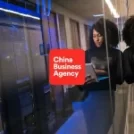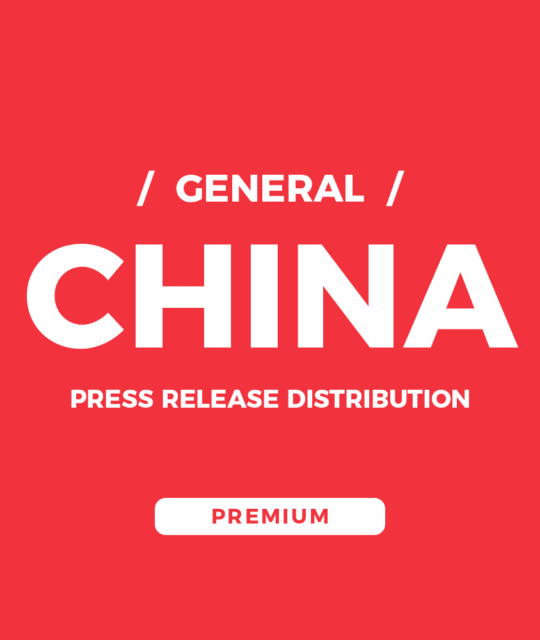In China’s highly competitive market, where digital channels often dominate, brands must also explore offline experiences to truly connect with consumers. With a growing desire for authentic and memorable brand interactions, offline experiences are becoming an increasingly valuable tool for international brands looking to make a lasting impression in China.
1. Understanding the Power of Offline Engagement
While online interactions are crucial, offline events and activations offer a more personal, tactile experience that digital channels cannot replicate. These interactions allow consumers to experience the brand firsthand, creating an emotional connection that fosters trust and loyalty. In a market as large and diverse as China, offline engagement can also help differentiate a brand from competitors by providing unique and customized experiences for target audiences.
For international brands, offline experiences serve as an effective way to introduce themselves to Chinese consumers, allowing them to interact with the brand in an immersive way. These events are also opportunities to showcase a brand’s personality, values, and product offerings in an environment that encourages direct engagement.
2. Types of Offline Brand Experiences in China
There are numerous ways international brands can engage with Chinese consumers through offline events. Here are a few examples of successful strategies:
Pop-Up Stores and Temporary Retail Spaces
Pop-up stores are temporary retail spaces that offer an interactive, often exclusive shopping experience. These stores allow brands to create a buzz, attract attention, and engage with consumers on a personal level. Brands can incorporate Chinese cultural elements into their pop-up store designs to make them more relevant to local tastes.
For example, Nike opened a pop-up store in Shanghai that featured interactive art installations, product customization stations, and exclusive product launches. The store created a unique experience that resonated with Chinese consumers, strengthening the brand’s presence in the market.
Product Sampling and Demonstrations
Offering product samples is a tried-and-true strategy to allow consumers to experience a brand’s products directly. Whether it’s a beauty brand offering samples of skincare products, a tech brand showcasing the latest gadgets, or a food company allowing consumers to try new snacks, product sampling encourages consumers to make informed purchasing decisions.
In China, product demonstrations often take place in shopping malls, department stores, and high-traffic areas. Brands can create unique and immersive product experiences that appeal to Chinese consumers’ desire for novelty and hands-on engagement.
Brand-sponsored Events and Experiences
International brands can also sponsor or organize their own events. These can include everything from music festivals and art exhibitions to sporting events and exclusive brand parties. The key is to create an event that aligns with the brand’s identity and resonates with the target audience.
In 2019, BMW sponsored the Shanghai International Film Festival, leveraging the event to showcase its luxury cars in a refined and culturally relevant setting. This helped strengthen BMW’s position as a premium brand among Chinese consumers.
Experiential Retail and Interactive Installations
Experiential retail and interactive installations have become increasingly popular in China, particularly in major cities like Beijing, Shanghai, and Shenzhen. Brands can use these spaces to engage consumers in a fun, interactive, and memorable way. These spaces might feature interactive screens, virtual reality (VR) experiences, augmented reality (AR) displays, or custom-designed activities that allow consumers to engage directly with the brand.
3. Engaging Local Influencers and Celebrities
One of the most effective ways to drive traffic to offline events in China is through influencer partnerships. Chinese consumers trust Key Opinion Leaders (KOLs) and celebrities, and their endorsements can dramatically increase the success of an offline activation.
When hosting an event or pop-up store, it’s important to invite the right influencers to attend, create buzz on social media, and share their experiences with their followers. These influencers can generate excitement and anticipation, ensuring that the event is a success and that brand exposure is maximized.
For example, Louis Vuitton often invites Chinese KOLs and celebrities to its exclusive fashion shows and pop-up events, amplifying the brand’s presence and creating an aura of exclusivity around the brand.
4. Creating Shareable Content and FOMO (Fear of Missing Out)
To further amplify the impact of offline events, brands should create opportunities for shareable content. This could include photo-worthy moments, interactive installations, or exclusive giveaways that encourage attendees to share their experiences on social media platforms like WeChat or Rednote. The goal is to generate user-generated content (UGC) that spreads the brand message and fosters a sense of community.
In addition, creating a sense of FOMO (Fear of Missing Out) can drive further engagement. Brands can make events feel exclusive by offering limited-time products, early access, or VIP experiences to those who attend. This tactic encourages consumers to act quickly and share their experiences with others, spreading the word about the brand’s offline presence.
5. Measuring Success and Gathering Feedback
As with any marketing campaign, it’s essential to measure the success of offline experiences. Brands should gather feedback from attendees to understand how well the event was received, which aspects of the experience worked well, and where improvements can be made.
Using QR codes or digital surveys during the event can help collect data and track consumer sentiment. This feedback can be invaluable for shaping future offline marketing strategies.
Conclusion
In China, offline experiences provide international brands with a unique opportunity to connect with consumers in a deeply engaging and memorable way. By creating tailored experiences that resonate with local tastes and leveraging influencers, brands can build lasting relationships with their target audiences. Whether through pop-up stores, product sampling, or brand-sponsored events, offline marketing remains a powerful tool for international brands looking to make a meaningful impact in China.
If you’re looking to bring your brand’s offline strategy to China, China Business Agency is here to help. From event planning to influencer partnerships and content creation, we offer full-service support to ensure your offline activities align with your brand’s goals and resonate with Chinese consumers.






